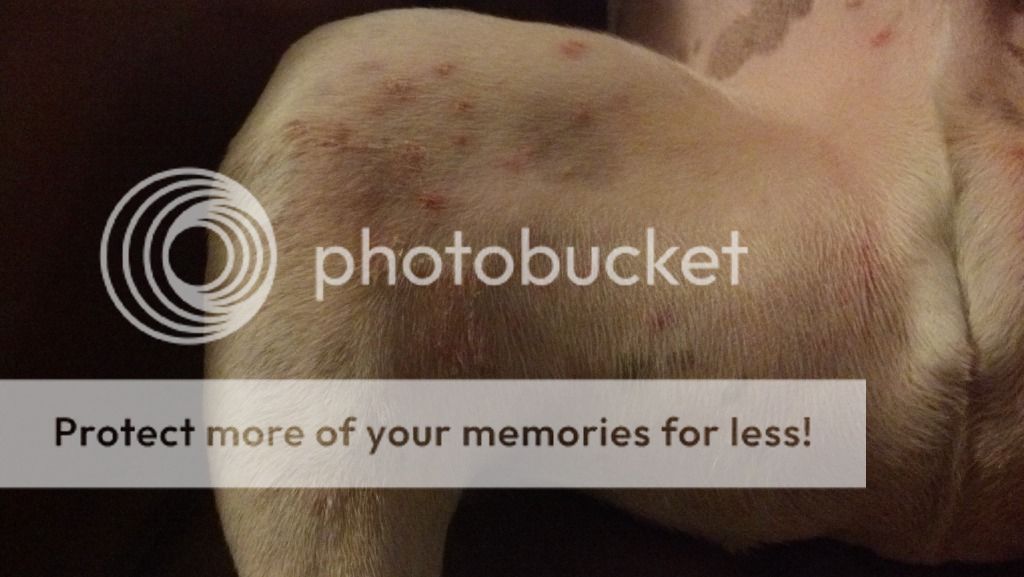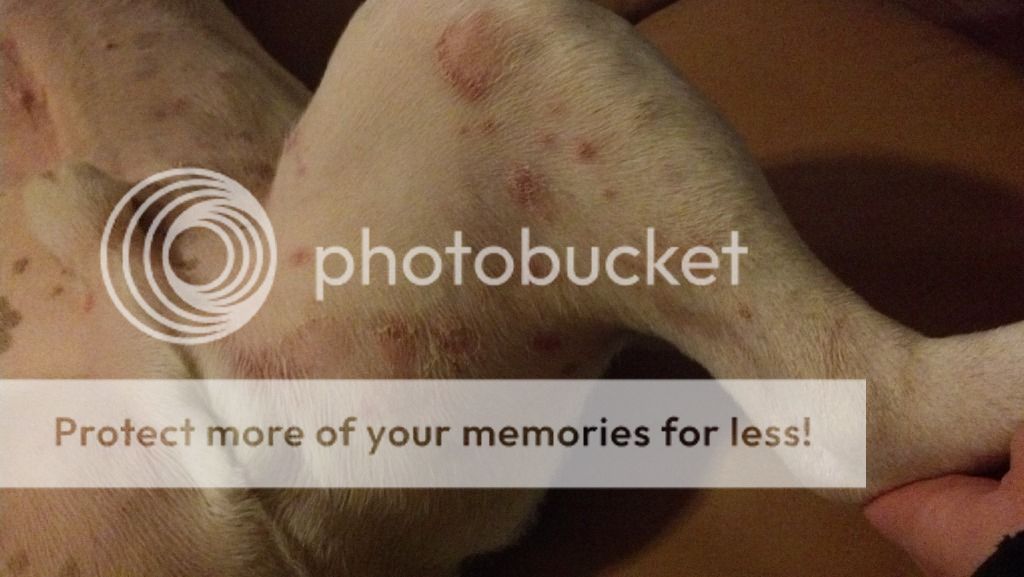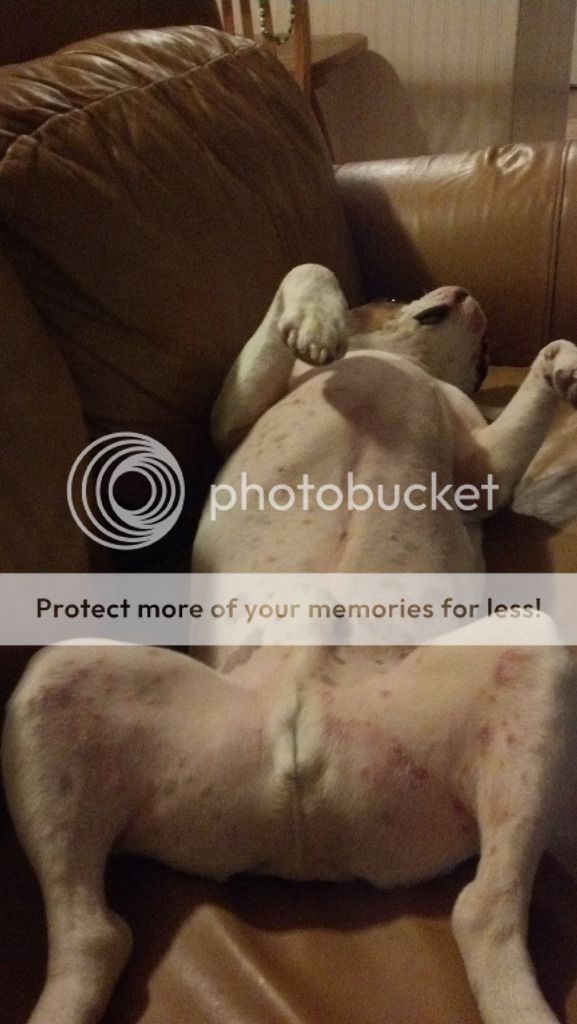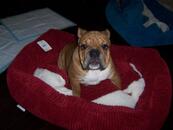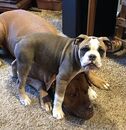TessaAndSamson
New member
Samson has a reoccuring rash that looks like seborrhea, it's not a conditon unique to bulldogs so I would be interested in what anyone's experience with it was with any dog. We are going to the vet today to have this rash looked at and I'll see what he says about it. It's dry flaky patches with some red bumps in the bad spots all over Sam's inner legs and belly and some small random patches on the rest of his body which is how seborrhea is described. It's said to be triggered by a variety of possible issues such as allergies which I am sure is the case with Samson if it is seborrhea. When it's come up before I didn't do any research I just took him to the vet and their answer is always a steriod shot and antibiotics which helps clear is up but it's come back twice now and I don't want to keep pumping him with steriods and antibiotics so I am looking into other options. Seems like he's getting more sensitive with age (he'll be 7 next month) and we've been having more issues lately than we did in the past 
